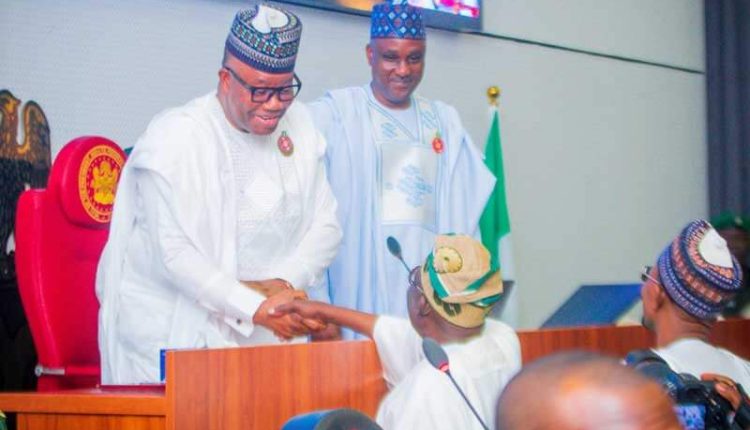BREAKING: Why NASS Should Adopt E-Parliament Model

The Clerk and Deputy Clerk of the National Assembly (CNA), Kamoru Ogunlana and Bashir Yero, have both made a case for the nation’s federal lawmaking bodies to adopt e-parliament.
Naija News reports that Ogunlana and Yero made the call while they spoke at the opening of a three-day retreat organized by the National Assembly in collaboration with the Policy and Legal Advocacy Centre (PLAC) on Friday.
The retreat, themed: “Building an Accountable, Transparent and Resilient Parliament: The Role of the National Assembly Top Management”, was supported by the UK Foreign, Commonwealth and Development Office (FCDO).
Ogunlana stated that emerging challenges showed that the National Assembly must explore and innovate new technologies.
“Our agenda at this retreat is not just to tackle emerging challenges but to explore team-building strategies that harness our human resources effectively,” he said.
According to him, the major challenge to e-parliament was the now-repealed Evidence Act of 1945, which barred the use of computer-generated evidence in courts.
“With the new Evidence Act 2004 in place, that barrier is gone, and there should be no excuse for delay,” he noted.
The Clerk, who cited the disruption caused by COVID-19 to the parliamentary process, noted that failure to integrate digital technology could expose NASS to future shutdowns.
“Failure to integrate digital technology exposes us to future shutdowns. We must be intentional in adopting the e-Parliament model,” he advised.
He emphasised that the e-Parliament system would reduce paperwork, promote remote participation and voting by lawmakers, enhance public access to parliamentary records, and streamline legislative tracking and documentation.
“We must deliberate on cost-effective strategies for implementing this transformation,” he stated.
On his part, the Deputy Clerk, Yero, stressed that the world is evolving and there is a need to explore best practices and tackle existing challenges.
“The world is evolving, and the National Assembly must not be left behind. We need to explore best practices, tackle existing challenges, and find innovative solutions to enhance accountability, transparency, and resilience,” he said.
